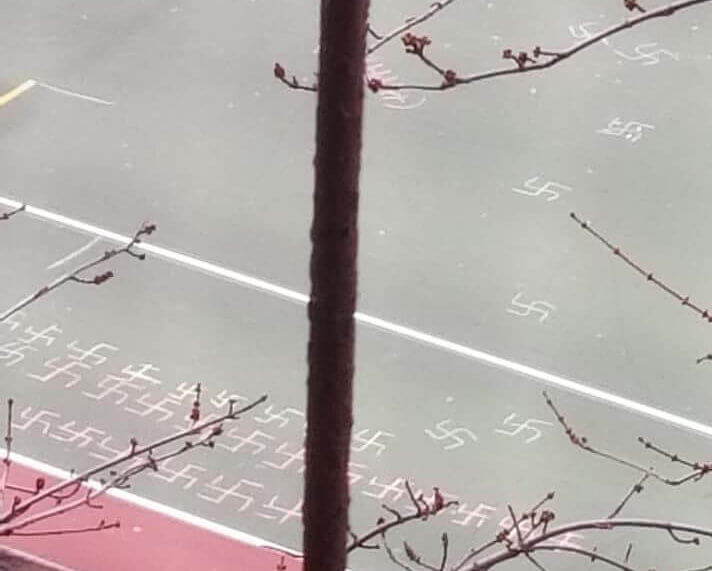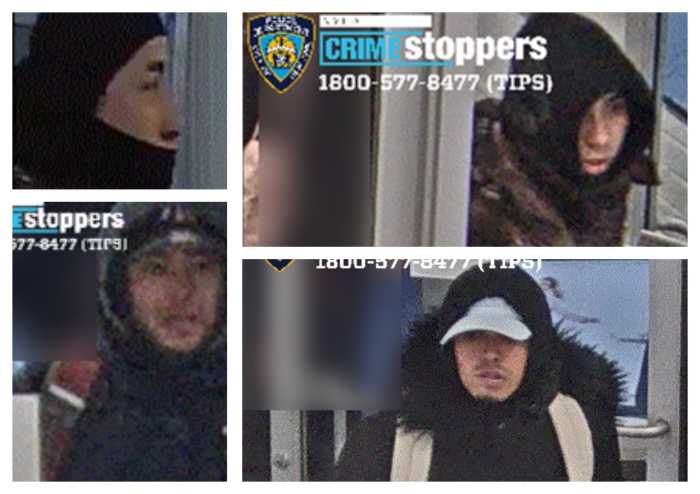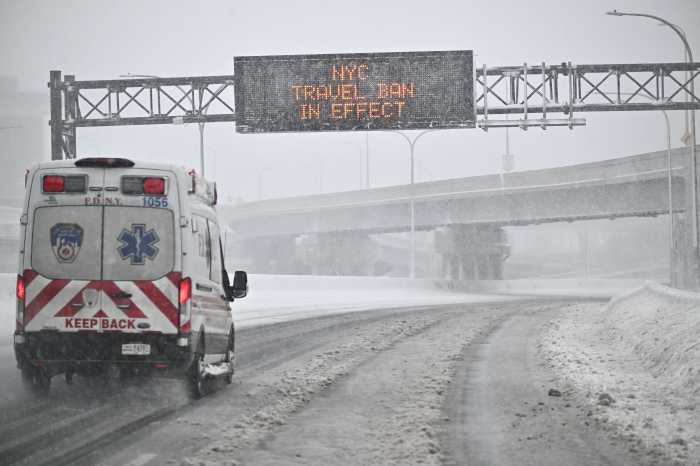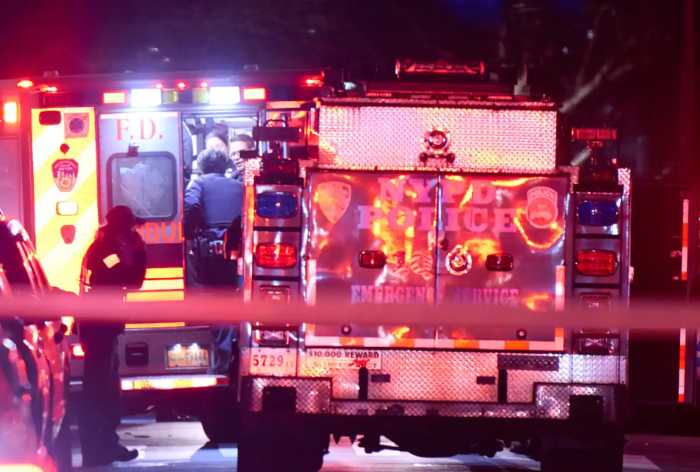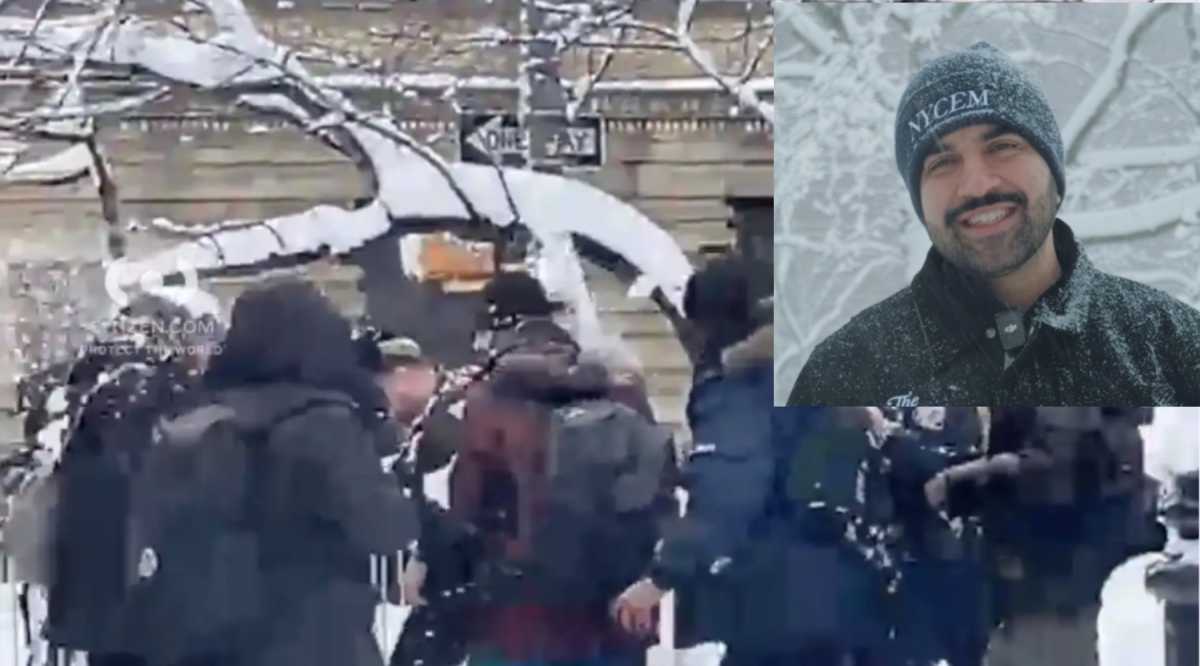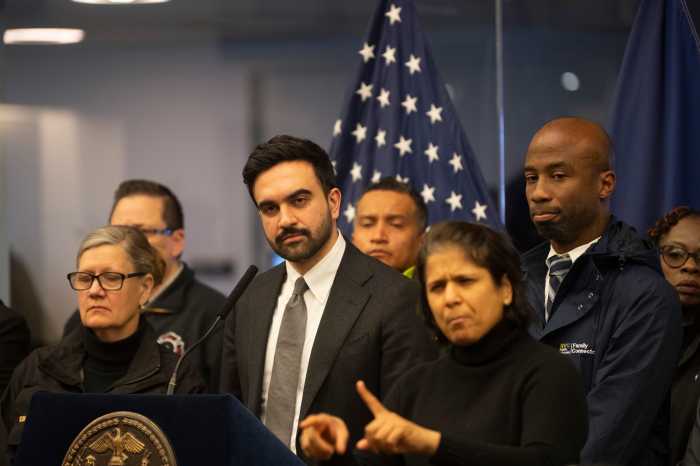This story was produced by QNS and its sister site, BrooklynPaper.com; written by Mark Hallum, Kevin Duggan and Colin Mixson; and edited by Robert Pozarycki
New York City may be the safest big city in the America, according to the mayor and police commissioner — but it is not immune from the troubling wave of anti-Semitism across the country.
As anti-Semitic hate crimes remain on the rise, Mayor Bill de Blasio announced the launch of the Office of the Prevention of Hate Crimes to put a cap on the number of attack and ultimately uphold the city’s new status as the safest big city in America.
Chief of Detectives Dermot Shea said the highest number of incidents were in precincts outside of Queens, but the “World’s Borough” has had its share of hate crimes in recent months.
“We definitely see some precincts spiking and taking a disproportionate share of those crimes [such as the 71st Precinct and 94th Precinct] in Brooklyn. We also see it on the Upper East Side in the 19th Precinct,” Shea said. “So, there are hotspots, if you will, where we see a disproportionate share but that’s not to say that it’s confined solely to that. We see small instances spread throughout the city.”
In November, a 16-year-old yeshiva student was attacked outside of a kosher deli in Forest Hills on 108th Street after school had let out.
Police attributed the attack as a case of mistaken identity, in which the attackers mistook the Bukharian teen, David Paltielov, 16, for a student at Forest Hills High School.
Paltielov was sent to the hospital where he was temporarily in a coma, but made a full recovery.
Cops from the 112th Precinct were hesitant to charge the two males arrested with a hate crime, despite the claims by many in the community that the group had belted anti-Semitic insults during the beat-down. Neighborhood Coordination Officers from the precinct described the attack as a “beef” between some of Russian Jewish kids and the Hispanic and black kids at FHHS.
In February, swastikas and other anti-Semitic markings were scrawled on the playground of P.S. 139 in Rego Park.
Bigots rampage in Brooklyn
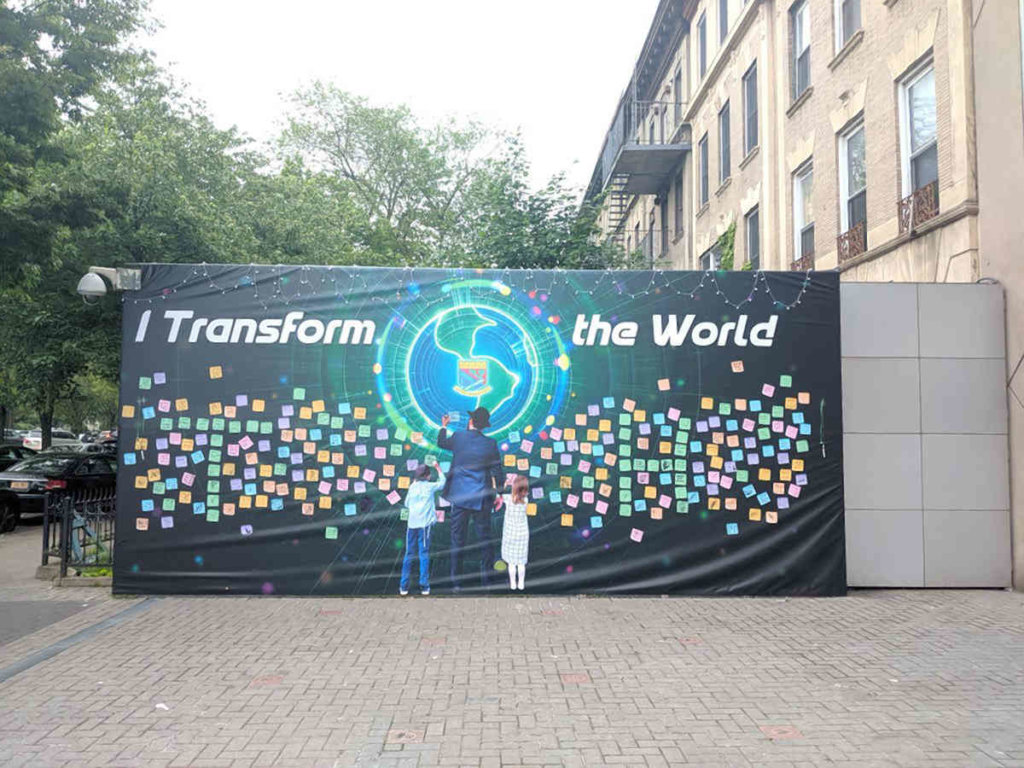
Brooklyn has been among the areas of the city hardest hit by anti-Semitic hate crimes. One of the more recent incidents occurred on May 30, when a bigot left an anti-Semitic Post-it note that read “Hitler is coming” on a billboard outside the Jewish Children’s Museum.
Witnesses reportedly saw a teenage girl writing the note on the wall — where the organization has invited passersby to leave Post-its describing how they would transform the world. Onlookers put up a search for the vandal, but she had already left the scene, according to the local Jewish news site Collive.com.
Police are currently anticipating a harassment charge — not vandalism — due to the semi-public nature of the wall, according to a police spokesman.
“My understanding this is an area where people were welcome to come and leave notes,” said Det. Michael DeBonis. “It isn’t a traditional vandalism, or graffiti.”
The case is being pursued by the department’s Hate Crimes Task Force, and any charges issued may be upgraded if investigators can prove bias in the incident, DeBonis said.
The museum’s spokesperson did not return requests for comment from The Brooklyn Paper.
Governor Andrew Cuomo condemned the act and directed the state’s Hate Crimes Task Force to assist NYPD with their investigation.
“To ensure those responsible for this heinous act are held accountable to the fullest extent of the law, I am directing the State Police Hate Crimes Task Force to immediately provide the NYPD with any resources needed to assist in the investigation of this incident,” Cuomo said in a May 30 statement. “Now and always, there is no place for hate in our state.”
Earlier in May, anti-Semites targeted the Williamsburg area particularly hard.
On May 4, a group of men attacked a 42-year-old man wearing religious garb on Lynch Street near Broadway, shouting anti-Semitic slurs, before socking him in the face, according to police.
Three days later, a teenager snuck up behind an Orthodox Jewish man on Marcy Avenue near Rodney Street on May 7, when he brutally sucker punched the man, before fleeing, cops said.
Police arrested a 16-year-old boy in connection with the May 7 attack Wednesday morning, charging with him assault as a hate crime, according to police.
The incidents rattled members of the neighborhood’s Orthodox Jewish community.
“People merely walking on the streets here feel like sitting ducks, worrying that they must look over their shoulder in fear of being hurt because of their faith,” said Rabbi David Niederman, executive director of the United Jewish Organization of Williamsburg.
The ongoing measles epidemic also fueled anti-Semitic incidents in Brooklyn. In April, a Jewish man accused an MTA bus driver of attempting to refuse him service on the B57 line in Williamsburg, and then shouting about the measles after he was able to run down and board the bus.
United against hate
During a June 4 press conference, de Blasio and NYPD top brass discusses the initiative to prevent hate crimes through early education as well as hotbeds of violent incidents throughout the city.
Though the mayor was cautious to attribute the rise in anti-Semitic hate crimes to fiery rhetoric across the country, but admitted that nationwide discourse is an underlying cause.
“Over the last three years something very dangerous is happening in this country with the rise of white supremacist voices and white supremacist organizations. And what I am trying to help get across is that that threatens so many different people in this country,” de Blasio said. “And certainly in this city, and it’s a reality that unfortunately underlies a lot of what I think is happening as it – again, that movement works against the Jewish community, the Muslim community, the immigrant community, the LGBT community. I mean it’s so negative and broad based; that I think it is part of why we’re seeing an uptick in hate crimes all over the country.”
NYPD reported that as of May, anti-Semitic hate crimes had gone up by 60 percent over the same time the year before with 110 incidents in 2018 over 58 in 2018.
“It’s creating a unity of purpose that I don’t think we’ve ever seen on this level before in the history of New York City. And that is made vivid today by the community leaders who are joining us shoulder-to-shoulder with the NYPD to fight all crime and particularly to fight hate crimes,” O’Neill said. “This is how we defeat hate crimes and this is how we defeat hatred. And Devorah, particularly to you, the efforts with the Children’s Museum to go to the root cause, teaching all New Yorkers, and starting with our children, to love each other, to understand each other.”

